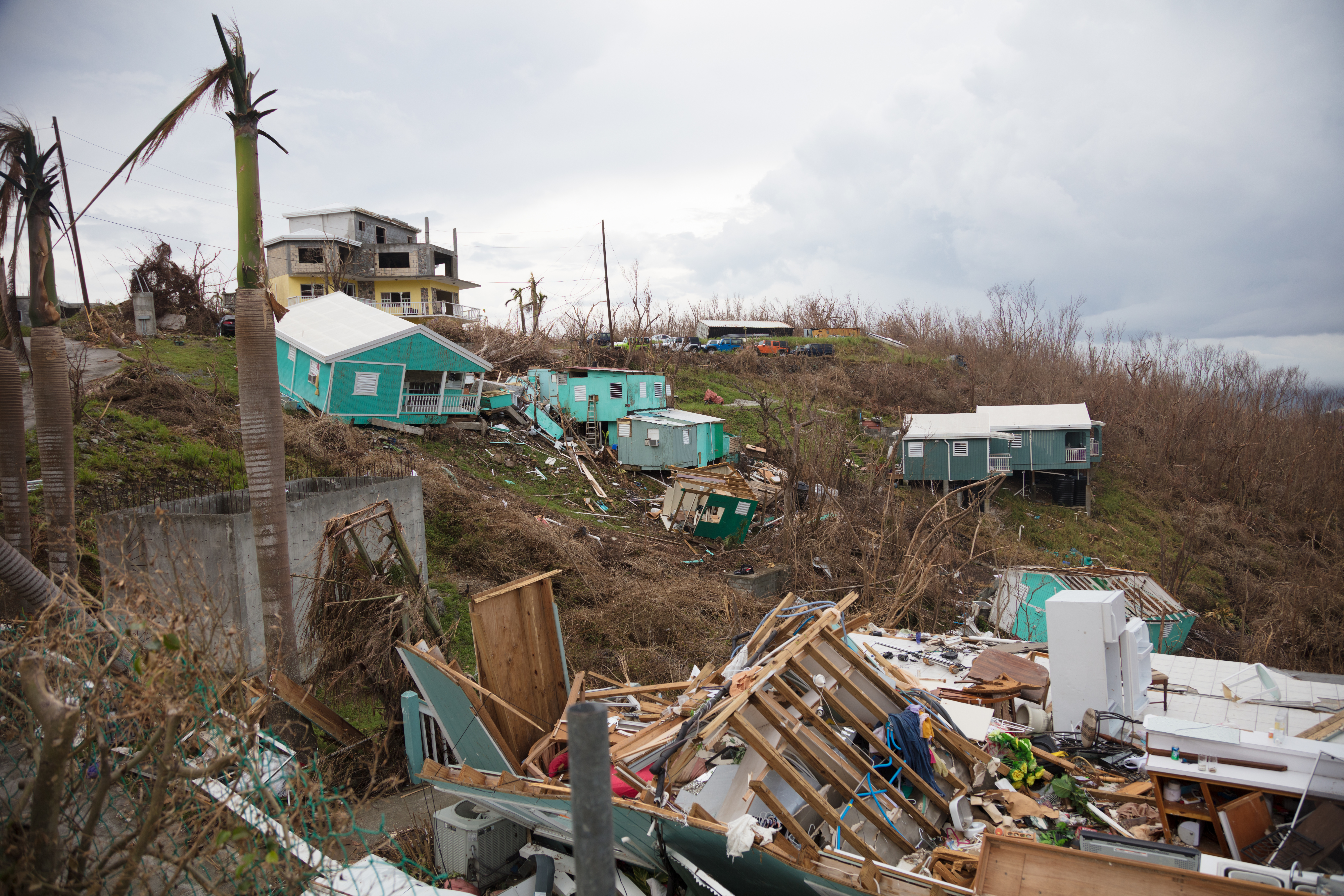
Hurricane Irma destruction in the Caribbean (Photo credit: C.D. Wheatley)
In 2017, the Caribbean was struck by two devastating Category 5 hurricanes, Maria and Irma. The storms again highlighted the need for enhancing capacity and cooperation in the region to respond to major disasters. Caribbean nations are actively working to strengthen resilience to the impacts of disasters and climate change, and while there has been significant progress in DRM, much work remains to be done. In FY19, GFDRR strengthened its partnership with the EU and the World Bank with the launch of two programs that will enhance the long-term resilience and adaptation capacity in the Caribbean to the benefit of the most vulnerable populations.
The €27.7 million Caribbean Regional Resilience Building Facility will support 15 countries with financial and technical assistance, enhancing regulatory and policy design capacity to mainstream resilience in key sectors; and the resilience of critical physical infrastructure, financial resilience, and availability of innovative disaster risk financing tools. It will also increase the affordability and uptake of the Caribbean Catastrophe Risk Insurance Facility. Activities will be coordinated with other ongoing programs in the Caribbean, such as the Global Risk Financing Facility (GRiF) and the Canada Caribbean Resilience Facility, and will include support for emergency preparedness in identifying and preparing financially viable investment projects, and for identifying financial protection at both regional and national levels.
RESULTS IN NUMBERS
Mapped 1,100 kilometers of all paved streets and collected 340,000 street-view images
The €3 million Technical Assistance Program for Disaster Risk Financing and Insurance in Caribbean Overseas Countries and Territories (OCTs), will help Caribbean OCTs better understand their contingent liability to disasters; provide an overview of financial protection tools available; assess the feasibility of participating in insurance mechanisms; develop innovative disaster risk financing options; and facilitate knowledge sharing among OCTs. This program will be conducted under the Caribbean OCTs’ €36.7 million Resilience, Sustainable Energy and Marine Biodiversity (ReSEMBiD) program implemented by Expertise France, that aims to strengthen environmentally sustainable economic development in Caribbean OCTs.
In FY19, the focus has been to launch and set up the programs, draft implementation arrangements, and prepare the work plan for FY20.
"These programs are a token of solidarity of the European people, and recognition of the very difficult challenges the Caribbean nations face. Hopefully this support will enable people and businesses to be more resilient to climate change."
—Daniela Tramacere, EU Ambassador to Barbados, Eastern Caribbean States, the OECS and CARICOM/CARIFORUM.
